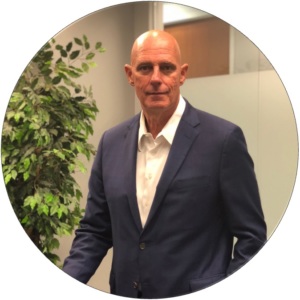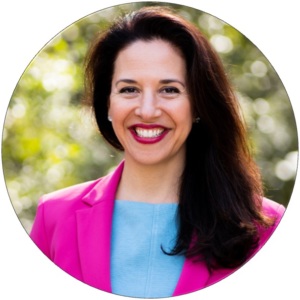
LMM Deal Digest: March 2025
There are more than 4,000 business brokers operating in the United States today, according to a recent study. Over the last few years, the number of business brokers, and the number of M&A transactions that they represent, has been steadily on the rise.
A different breed than their Wall Street trained investment banking counterparts, business brokers rely on their unique people-skills to successfully shepherd their clients through the M&A process. The best of the best have honed their deal making craft through years of community building, getting to know their clients, the industries they operate in, while developing a more holistic approach to the practice of selling SMBs.
We recently interviewed four business brokers and members of the Axial platform about their work, their approaches, and what constitutes success for them.
Here’s more from these outstanding dealmakers:

Craig Nedrow | Owner and President, Nedrow Business Advisors
Craig Nedrow founded Nedrow Business Advisors in 2016 near Dallas, and the firm’s promise to clients is: “Your goals are our goals”. His firm represents sellers in Texas or Southern Oklahoma, primarily in the manufacturing, plumbing, remodeling, and other trade industries. To date, Nedrow Business Advisors has closed 48 transactions, including three in January this year.
But Craig Nedrow is much more than a business advisor: He is also the founder of Craig Nedrow Ministries and Stand Up 4 Jesus Ministries, and feels strongly that these entities – his business advisory firm and his ministries – meld together and help people, which is his ultimate calling. Nedrow also has two weekly radio programs in Texas and Oklahoma, one for his advisory firm and one for his ministry, where he openly speaks on each platform about both business and faith.
Running a ministry seems disparate from running a business advisory firm. How do these two entities complement each other?
Craig Nedrow: Some people think your faith and business don’t mix. But your faith should be reflected in how you conduct your business. I talk about the ministry on my business program, and my business on the ministry program, and sometimes business owners call me and say, “I’ve been listening in to your radio ministry and I’m a Christian, and I’d love to meet you to help me sell my company”. In my opinion, faith and business are intertwined, and we try to conduct our business that way.
Per your website, you say your firm provides a “much simpler approach” to selling businesses. What is that approach?
CN: At the end of the day, this is a relationship business, this is a people business. We are wildly successful and the Lord has blessed our company, but it’s because we really care about our clients and put our clients first. Most of our clients are in the $1 million to $50 million space, and their businesses are part of who they are. This is a life-changing event for them, and we are sensitive to that. When I say we take a simpler approach, we explain to them what the process will look like, what they can expect, and we let them know this will be an emotional process and that we’re here for them all the way through. Everything is their decision. It is not unusual for me to get a call at 9 p.m. on a Sunday from a client just going through a flood of emotions.
You also note on your site that you want to help others in “an honorable, personal way”. What does that mean to you?
CN: The first 10% of any fee that we take, we tithe on that to several different ministries, and organizations that align with our clients. Let’s say our fee is $200,000 on a listing. That first $20,000 gets tithed to a 501c3 nonprofit, and from there we distribute and tithe to several churches, missions, national and international organizations, women’s shelters. We try to be intentional in our giving and before we give to any organization or ministry, we learn about them and make sure they are being good stewards. We also personally go down and feed and clothe the homeless in downtown Dallas, and we distribute Bibles to prisons all over Texas and to small churches that need help with Bibles.
What do you look for in sellers?
CN: We really love the industries where you get your hands dirty. We look for a motivated seller. We want decent financials. Do they all have to be audited and reviewed? Not necessarily. But if somebody has handwritten records, that’s not going to work. We also have great relationships with a lot of CPA firms and companies that do valuations, and we outsource a lot of that stuff. When we put together our marketing packages, those are some of the costs we ask the business owner to help us absorb.
Besides entwining with your ministry, what sets your firm apart from some others?
CN: We are a performance-based firm. We don’t collect our fee until the end. If we don’t sell the company, we don’t get paid. We just feel like if we don’t’ sell somebody’s company, we haven’t earned our fee. But we have about an 85% closing ratio on companies that we list. We are on pace to do 15 to 20 transactions this year.

Jackie Ossin Hirsch | Owner, Crowne Atlantic
Women often take a back seat to men in the business broker arena, but that hasn’t deterred Jackie Ossin Hirsch, founder of Crowne Atlantic Properties, LLC, in Orlando. Hirsch started selling companies at age 22, and six years later, in 2004, founded her firm. She flew solo until her father, now deceased, and her brother — whom she says is one of her best friends — came on board.
To date, Hirsch has worked on more than 400 transactions in the restaurant, manufacturing, medical, and other industries, focusing primarily on companies with a value of $20 million or less. Roughly 90% of her clients are sellers, and being a Central Florida native with a flourishing network, Hirsch receives referrals from accountants, attorneys, and other business owners in the state. This year, Crowne Atlantic is on track to have an “eclipse” year, she said.
What’s it like being a woman in this industry?
Jackie Ossin Hirsch: Most of the time I don’t notice that I’m different, but I do notice that other brokers view it as strange. Maybe I work a lot harder. But my mom is a Midwesterner and the Midwesterners are just like that: You just wake up and start working. It’s something in the soil there. We work hard and do what we say we’re going to do. If we make a mistake, we say we made a mistake.
What makes your business brokerage successful?
JOH: I get deals because I call people back. We prepare a seller and prepare the business to sell properly up front, and that’s a defining factor. Right now I’m putting together a very elaborate workflow chart for one of my deals. My niche is really solid cash-flowing businesses in Florida. Business is really booming.
What were some of the challenges you faced in 2021?
JOH: I had a record year, but in that record year my husband’s grandfather died, and then my dad died, and then I had COVID for a couple weeks and I lost eight pounds. Then, my husband’s grandmother died and I had to have a hysterectomy — and during that time I did about $30 million in deals. It was a hard year, and I’m open about it. When you do your deals, you still have to have your head in the game, because your sellers and buyers have personal stuff, too, and I often help them through it.
You pay a lot of attention to detail. Can you elaborate?
JOH: Selling a company is not a sale; it’s matching two parties together. So there are nuances, or different details that are important in the transition — and if you miss that, you’ll possibly miss the sale or sell it to a party that shouldn’t be buying it, or the deal might fall through. Understanding culture and understanding some of the nuances that you wouldn’t find on a tax return or website is very important. We are working with entrepreneurs, and this is the heart and soul of the business climate in America, people who are always worried about the future. And when you meet these entrepreneurs and see their passion, and what they give not just to their businesses, but all of the families they support, and their communities, it helps you restore your hope for humanity.
What do you personally look for in a client?
JOH: My favorite attribute is integrity. Some are not so friendly or fun loving. But these are hard-working entrepreneurs. You’ve got to be flexible and really see the golden flower in their soul. And if they operate with integrity and have good books and records and treat their people well, I can work with them. That is why we have such a strong following: Our buyers that come to us know that that’s the kind of deals we have. What I can’t work with are people who are hiring illegals or paying people under the table, or those with other questionable practices.
What has been your most memorable deal?
JOH: I sold a millwork company in 2016 and my seller was sick. He had Stage IV, and I had to get it done for his employees, his wife, and his two kids, and it was heavy. I remember feeling that deal. We had two buyers, one of them in house and another from another broker, but the buyer with the other broker was better for the team, and would take care of the business. So we went with that buyer and had to rush everything, and three weeks later, after we sold it, the seller passed away.
What industries are specifically hot right now in Florida?
JOH: Construction, because we have so many people moving here. That industry just keeps growing. Number two is manufacturing, and number three is relocatable or online businesses. People can live in Florida and run their businesses — they can live where it’s gorgeous and sunny, and right by Disney. We have been so busy with deals coming to us at this point that we haven’t had to do a lot of outbound reach. I feel lucky, but 23 years of plowing the field will get you that type of business.

Richard Underwood | Owner, Executive Business Advisors
The year 2021 was equally difficult for Richard Underwood, founder of Florida-based Executive Business Advisors (formerly Executive Business Brokers of Montana). Underwood co-founded the firm 12 years ago with his wife, who passed away last year. Her passing forced Underwood to take a temporary step back, but now, he is pushing forward to pursue more transactions and to add to the 60 deals he’s already completed in his long transactional career.
Underwood’s advisory firm focuses on a specific niche that he chooses not to disclose, and he only represents sellers. He also provides his own valuations, and takes pride in the fact that he understands small businesses since he used to own and operate one himself.
In Polson, Mont., why did you found your firm 12 years ago?
Richard Underwood: I had been in business with my dad for a number of years and got tired of being a general contractor and developer. I was approached by brokers about selling our company, and so I listened to some of those conversations and I thought, “You know, this is what I should be doing with my experience and knowledge.” I can relate to sellers. I can relate to people that own a business, and the sleepless nights, the cash-flow problems, the employees problems, and all of the regulations and dealing with the unions. So around 1990 I got my business broker’s license and a real-estate license, and started going at it.
How do you handle fees?
RU: We provide a service and don’t receive any compensation until there’s a transfer — no upfront fees, no monthly fees. They don’t even have to offer me a cup of coffee. The situation is that if you’ve got buyers and you claim you’ve got buyers, then why do you claim you need me to pay up front?
There are many advisory firms out there. What makes yours different from the pack?
RU: I typically get the sellers more money for their businesses than the national industry average. I also tell some buyers they are not the right buyer. I send them an email to go away, saying “This is the price. This is what they want for the business and it’s realistic.” And I don’t take on any junk – just established, solid businesses. Also, most sellers don’t want to pay for a valuation. So I give them my opinion. I look at their company and determine what I can get a reasonable person to pay for their business.
What was your greatest challenge in 2021 in the industry you represent?
RU: The big challenge is in getting an owner in that industry to agree to sell their company. They are cash cows. I’m just real straight-up in my conversations with them. I explain that I only represent them as the seller and that I guarantee that any buyers they meet will be financially and emotionally qualified to buy that business.
Are most sellers worried about the fate of their employees should they decide to sell?
RU: About 95% care about their employees. It ranges from a basic conversation to a big issue. But to be honest, most buyers are intelligent and sophisticated, and the last thing they want is to buy a company and have everybody bail on them. The real problem becomes if the buyers are just as concerned as the sellers that people are going to stay. My answer to the buyer is, “If you treat them fairly and with respect, like you want to be treated, there’s no reason for them to leave now, is there?”

Shu Ghosh | Buyer Sales Development, NuVescor
Many business brokers work more intensely with sellers, helping them value and prepare their businesses for a sale. But as the buyer sales development guru at NuVescor, a Grand Rapids, Mich.-based M&A advisory firm focused on manufacturing, Ghosh spends his days answering potential buyer questions and helping to find the best match for the sellers his firm represents.
NuVescor typically services clients with revenues from $5 million to $100 million. Most of these clients are located in the Midwest, and both strategic and financial buyers come calling.
What is your typical role in the M&A process at NuVescor?
Shu Ghosh: When we bring a company to market, we reach out to people who have expressed some interest, and my role is to get them the information they need, work with them through the transaction process, and answer their questions. A lot of the questions are financial or operational about the companies being sold. A buyer may not be the best fit or they will see a description earlier in the process and realize it’s not quite the same fit later on that they thought initially. Maybe there’s something on the financial or operational side that’s not appealing to them. So I try to work with them to resolve any of these types of issues. If it’s not a good fit, you can’t force it to happen, but if it’s a good fit, you’ve got to highlight that. Once they want to do a Letter of Intent, I hand them off to the other team members.
When representing sellers, what are the pros of working with financial buyers, who you say comprise 50% of your buyer list?
The pros are that they generally have more in terms of financial resources and contacts, compared to a strategic buyer. Strategic buyers might have an advantage in that they would generally have stronger experience in that industry; however, financial buyers usually have holdings that are relevant in the seller’s space, so they can also still help the seller’s company in nearly the same ways as a strategic buyer. Financial buyers [will] usually express interest when they know a lot about operating in an industry.
How does “transaction facilitation” differ at your firm compared to other advisory firms?
We have a lot of experience and a very long history in the manufacturing space, along with industrials and chemicals, among other [industries]. And we employ a transaction process that we’ve refined over the years. We have a lot of success stories and references, and we close 80% of the transactions that we get.
What type of buyers do you target?
SG: We target whomever is able to be the best fit to buy the company, plus the price has to be sufficiently high to meet the seller’s expectations. Ultimately the seller decides. The buyers we work with predominantly want to buy and hold and help the companies grow. Their focus is usually to both make money and to take care of the employees and we make sure they have a track record of doing both. We come up with several buyers. Once we send an LOI and the seller is happy, then we can move forward.
